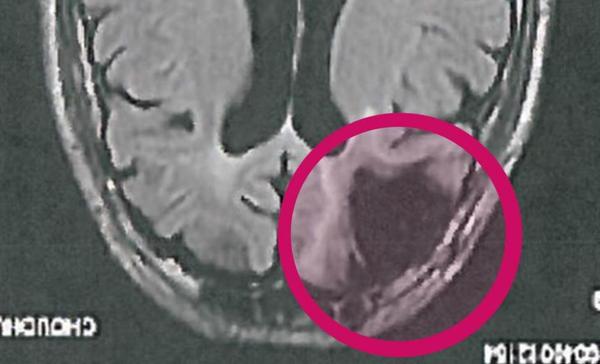Convicted killer asks U.S. Supreme Court to halt execution due to brain damage


A free daily email with the biggest news stories of the day – and the best features from TheWeek.com
You are now subscribed
Your newsletter sign-up was successful
A Missouri man scheduled to be put to death on Tuesday is asking the U.S. Supreme Court to halt his execution, saying that because part of his brain is missing following an accident, he suffers from mental illness and intellectual disability.
Cecil Clayton, 74, was sentenced to death for shooting and killing a sheriff's deputy in 1996 while the deputy responded to a domestic disturbance call, NBC News reports. Clayton was injured in a sawmill accident in 1972, when a piece of wood went into his skull; doctors had to remove one-fifth of his frontal lobe, or a little less than 8 percent of his brain. Clayton's attorneys say that the surgery turned Clayton suicidal, paranoid, and depressed, and he became an alcoholic prone to violent outbursts.
Missouri's highest court ruled against Clayton, 4-3, over the weekend, saying that because he understood why he was sentenced to death, he is competent for execution. Three judges disagreed, writing in a dissent, "The majority's decision to proceed with the execution at this time and in these circumstances violates the Eighth Amendment ban on cruel and unusual punishment."
The Week
Escape your echo chamber. Get the facts behind the news, plus analysis from multiple perspectives.

Sign up for The Week's Free Newsletters
From our morning news briefing to a weekly Good News Newsletter, get the best of The Week delivered directly to your inbox.
From our morning news briefing to a weekly Good News Newsletter, get the best of The Week delivered directly to your inbox.
A free daily email with the biggest news stories of the day – and the best features from TheWeek.com
Catherine Garcia has worked as a senior writer at The Week since 2014. Her writing and reporting have appeared in Entertainment Weekly, The New York Times, Wirecutter, NBC News and "The Book of Jezebel," among others. She's a graduate of the University of Redlands and the Columbia University Graduate School of Journalism.
-
 Switzerland could vote to cap its population
Switzerland could vote to cap its populationUnder the Radar Swiss People’s Party proposes referendum on radical anti-immigration measure to limit residents to 10 million
-
 Political cartoons for February 15
Political cartoons for February 15Cartoons Sunday's political cartoons include political ventriloquism, Europe in the middle, and more
-
 The broken water companies failing England and Wales
The broken water companies failing England and WalesExplainer With rising bills, deteriorating river health and a lack of investment, regulators face an uphill battle to stabilise the industry
-
 ABC News to pay $15M in Trump defamation suit
ABC News to pay $15M in Trump defamation suitSpeed Read The lawsuit stemmed from George Stephanopoulos' on-air assertion that Trump was found liable for raping writer E. Jean Carroll
-
 Judge blocks Louisiana 10 Commandments law
Judge blocks Louisiana 10 Commandments lawSpeed Read U.S. District Judge John deGravelles ruled that a law ordering schools to display the Ten Commandments in classrooms was unconstitutional
-
 ATF finalizes rule to close 'gun show loophole'
ATF finalizes rule to close 'gun show loophole'Speed Read Biden moves to expand background checks for gun buyers
-
 Hong Kong passes tough new security law
Hong Kong passes tough new security lawSpeed Read It will allow the government to further suppress all forms of dissent
-
 France enshrines abortion rights in constitution
France enshrines abortion rights in constitutionspeed read It became the first country to make abortion a constitutional right
-
 Texas executes man despite contested evidence
Texas executes man despite contested evidenceSpeed Read Texas rejected calls for a rehearing of Ivan Cantu's case amid recanted testimony and allegations of suppressed exculpatory evidence
-
 Supreme Court wary of state social media regulations
Supreme Court wary of state social media regulationsSpeed Read A majority of justices appeared skeptical that Texas and Florida were lawfully protecting the free speech rights of users
-
 Greece legalizes same-sex marriage
Greece legalizes same-sex marriageSpeed Read Greece becomes the first Orthodox Christian country to enshrine marriage equality in law
